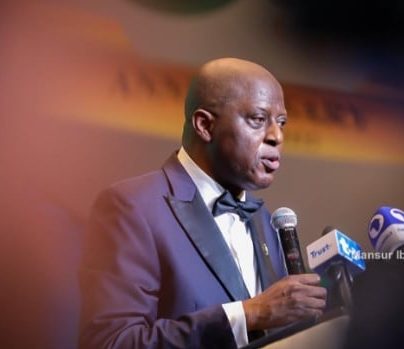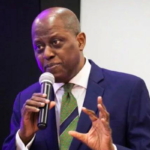The Central Bank of Nigeria, CBN has said the recent introduction of new minimum capital requirements for banks was part of its strategic move to bridge financial inclusion barriers in underserved populations.
The CBN governor, Yemi Cardoso stated this at the opening ceremony of the 2024 International Financial Inclusion Conference, themed: Inclusive Growth—Harnessing Financial Inclusion for Economic Development, describing access to financial inclusion as part of the moves for a sustainable economic development.
“The Central Bank of Nigeria is keen on ensuring its Financial Inclusion policies and initiatives address the peculiar access to finance barriers for underserved populations, particularly Women, Youth, and MSMEs.
“In line with its efforts to deepen financial inclusion, the CBN recently introduced new minimum capital requirements for banks. This strategic move ensures that banks are well-capitalized, enabling them to take on greater risks, particularly in underserved markets.
“With stronger capital bases, banks can provide more loans and financial products to MSMEs, rural communities, and other vulnerable segments that have previously struggled to access formal financial services,” he said.
He stressed that SMEs contribute over 80 percent to the country’s employment rate, saying that financial inclusion has the potential to unlock significant economic growth, particularly through the empowerment of small and medium-sized enterprises (SMEs), women and other vulnerable segments of the population.
“Financial inclusion for SMEs is essential to unlock the full potential of this sector, and the Nigerian government remains committed to supporting these enterprises.
“Similarly, women play a critical role in driving inclusive growth. Research shows that when women are financially empowered, they reinvest in their families and communities, creating broader socio-economic benefits. Yet, women in Nigeria are disproportionately excluded from the formal financial system,” he said.
The governor of Lagos State, Mr. Babajide Sanwo-Olu admitted that the goal to achieve financial inclusion is confronted by challenges, underpinning it on the lack of infrastructure and trust.
“Let me state here that we cannot deny the significant challenges on the journey toward financial inclusion. Many Nigerians still lack access to the formal banking system. For some, it is about a lack of physical infrastructure and for others it is about trust.
“Let us not forget the digital divide which creates a new kind of exclusion for those who do not have access to digital tools,” he said.
The governor represented by the deputy governor, Obafemi Hazmat, however, noted that innovation and resilience would help to reduce the gap in financial inclusion drive.
“We cannot allow these obstacles to deter us, instead we must approach them with the innovation, resilience and determination that we, as Nigerians are known for,” he stressed.

 Join Daily Trust WhatsApp Community For Quick Access To News and Happenings Around You.
Join Daily Trust WhatsApp Community For Quick Access To News and Happenings Around You.


